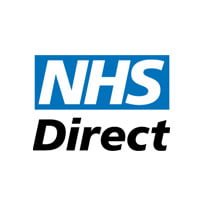NHS Direct plunges into red
- 20 June 2013

The on-going crisis in the roll-out of the NHS 111 service has pushed NHS Direct into deficit just one month into the financial year.
A revised budget, due to go to the board for approval next month, shows NHS Direct is already £1.5m in the red, mostly because it has either failed to get NHS 111 referrals or because it is taking too long to deal with the calls that it is getting.
When former health secretary Andrew Lansley announced that NHS Direct’s telephone and online services would be replaced by NHS 111 services, NHS Direct rethought its future around winning NHS 111 business.
It picked up nine contracts to deliver NHS 111 in around a third of the country. However, problems with the new service mean that it has not been fully implemented, and traditional out of hours remain in place.
The latest board papers released onto NHS Direct’s website say that much of its deficit is down to the trust being “unable to take all the calls to the North West, West Midlands and South East London 111 services, where diversions, in particular to out-of-hours services and the 0845 contingency [NHS Direct’s old service], have been put in place.”
A chief executive’s report also says that “call lengths are running at between 600 and 650 seconds” when the service had budgeted for 310-385 seconds.
As a result, the board papers say: “The trust has a year to date deficit of £1.5m, which is £1.4m behind plan, largely because estimated income on 111 services is lower than planned.” The performance of the organisation’s 0845 arm is described as “satisfactory”.
NHS 111, which was meant to go live nation-wide on 1 April, has been dogged by problems. Even at the pilot stage, GP leaders called for a halt to the programme.
EHI reported earlier this year that in Manchester, the NHS 111 service went into “total meltdown” on its first night, and in parts of South London, delays to the go-live meant GPs had to direct patient calls because the previous service contract had expired.
NHS Direct’s 0845 health advice line has been in use in many areas of the country as the problems have been dealt with.
NHS Direct itself is now putting recovery plans in place that focus on getting call lengths down. However, HSJ has reported that the trust may be planning a “managed exit” from its NHS 111 contracts over the rest of the year; handing them off to ambulance trusts.
The board papers say that a new delivery plan will be presented to the board on 1 July. “The trust is now in discussions with NHS England andits local commissioners of the NHS 111 services regarding the volume of services that it will provide,” it says.




